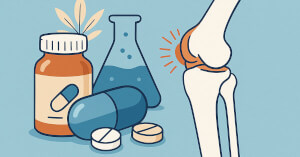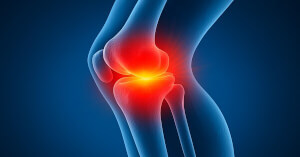
Quercetin
Quercetin is a flavonoid that acts as an antioxidant and anti-inflammatory agent, supporting immune function and protecting cells from damage.
Quercetin is a plant flavonoid found in fruits, vegetables, and tea. It acts as an antioxidant and anti-inflammatory compound.
Quercetin supports immune health, respiratory function, and may help stabilize mast cells that release histamines. It is often combined with bromelain or vitamin C for enhanced effect.
Quercetin is used for allergies, immunity, and oxidative stress. It is generally safe, though high doses can cause mild headaches or tingling in some users.
Other names & forms of Quercetin supplement : quercetin dihydrate, quercetin supplement, flavonoid antioxidant
Possible Benefits
Quercetin is a flavonoid found in many fruits and vegetables that exhibits strong antioxidant and anti-inflammatory properties by inhibiting pro-inflammatory enzymes and scavenging free radicals.
- Helps support Immunity by modulating immune cell activity and reducing histamine release.
- Contributes to Heart Health by improving endothelial function and reducing LDL oxidation.
- May promote Blood Flow & Circulation by enhancing nitric oxide availability and vasodilation.
- Provides Anti-Aging benefits through its potent free radical scavenging activity.
Side Effects
Quercetin is a flavonoid with antioxidant and anti-inflammatory properties, but mild effects can occur as your system balances. Watch for:
- Possible headache or dizziness during initial use
- Mild gastrointestinal upset, nausea or stomach cramps, especially on an empty stomach
- Occasional skin rash or itching, in sensitive individuals
- Rare kidney discomfort with high-dose long-term use
- Temporary mild flushing or warmth sensation
Interactions
Possible interactions include:
- Anticoagulant and antiplatelet agents: Quercetin’s platelet-inhibiting effects may add to warfarin or supplements like Garlic, raising bleeding risk, monitor INR.
- Antihistamines: Its mast cell-stabilizing properties could potentiate effects of loratadine; monitor for increased dryness or drowsiness.
- Cytochrome P450 substrates: Quercetin can inhibit CYP3A4, potentially increasing levels of drugs like statins or CoQ10; dose adjustments may be needed.
Precautions
Before supplementing with Quercetin, confirm none of the following apply to you. If they do, consult your healthcare provider:
- Individuals on antibiotics (e.g., fluoroquinolones): Quercetin may interfere with absorption; separate doses by a few hours
- People with kidney disease: Monitor renal function if used long term at high doses
- Those on blood-thinning medications: Potential additive anticoagulant effects; monitor clotting parameters
- Pregnant or breastfeeding women: Limited safety data; use under professional guidance
- Patients scheduled for surgery: Discontinue at least two weeks prior, possible interactions with anesthesia and bleeding risk
Studies
These studies provide scientific insights into Quercetin benefits:
A 2015 randomized, double-blind trial in 60 adults with allergic rhinitis found 500 mg quercetin daily for 8 weeks reduced nasal symptom scores by 30 % versus 10 % with placebo.
A 2017 pilot study in 20 healthy volunteers reported that 1 g quercetin acutely blunted post-exercise inflammation by 25 % versus placebo .
A small RCT in 30 pre-hypertensive subjects found no effect of 1 g/day quercetin on blood pressure after 4 weeks .
No large-scale trials
have assessed quercetin’s impact on metabolic or cognitive endpoints in humans.Disclaimer: This page is for educational purposes and does not replace medical advice. If you're pregnant, have a condition, or take medication, speak with a qualified professional.










